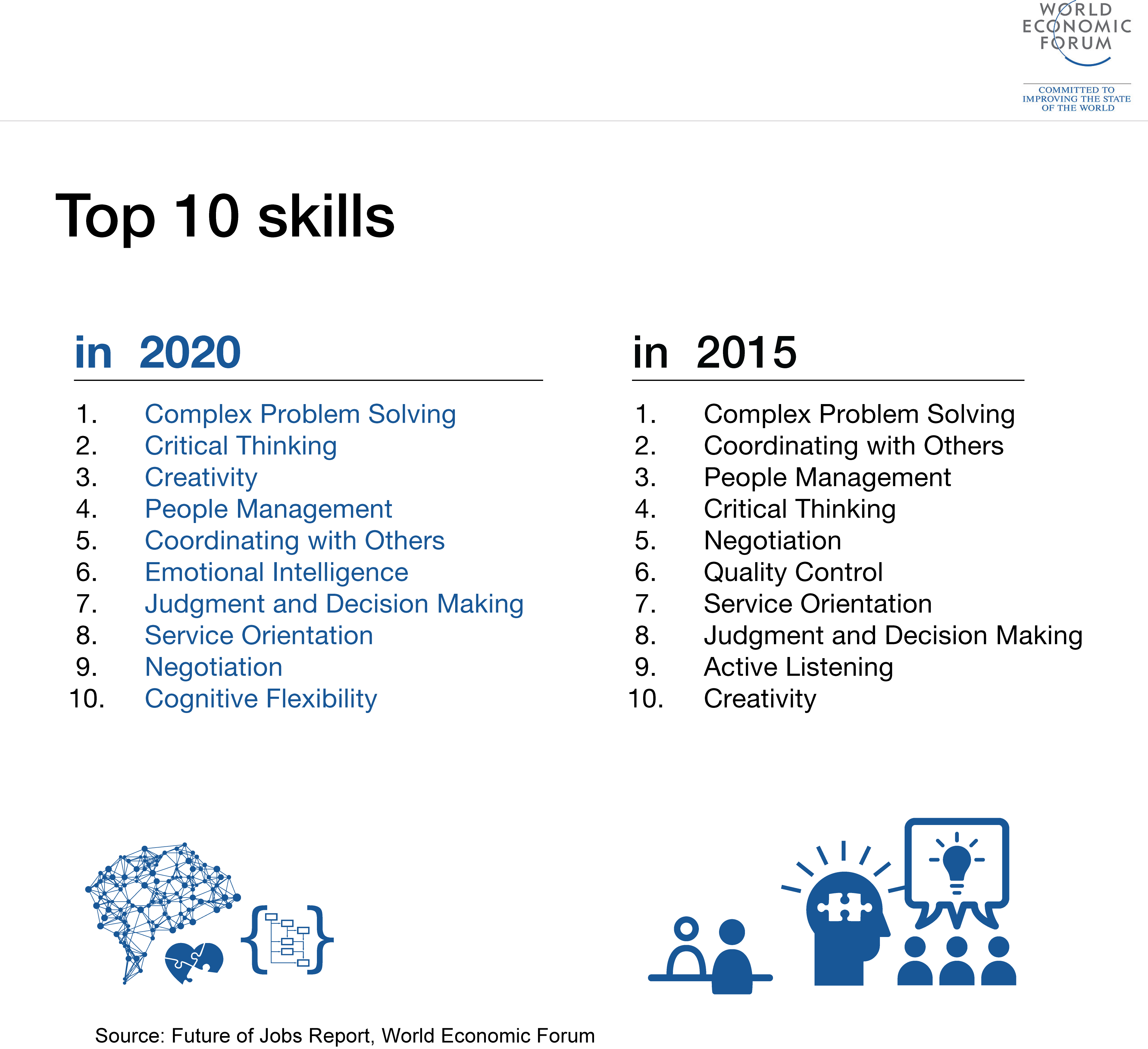How long will your skills last? Depends on your job

Some skills will go further than others Image: REUTERS/Shannon Stapleton
- Some of the most in-demand skills today did not exist as recently as 10 years ago.
- It's estimated that by the year 2020, “more than a third of the desired core skill set of most occupations will be comprised of skills that are not yet considered crucial to the job today”.
Two-thirds of children entering primary school in 2016 are likely to find themselves working in jobs that do not yet exist.
This new environment of technological, demographic and socio-economic disruption is transforming industries and reducing the shelf life of workers’ skills, according to the World Economic Forum’s Future of Jobs report.
Researchers find that as the employment landscape changes, it becomes more important for businesses and workers alike to keep skills relevant and up to date. Some of the most in-demand skills today did not exist as recently as 10 years ago.
In fact, the pace of change is so fast that it’s easy to fall behind.
Change in demand for popular skills over time
The chart below shows the rise and fall of the job market's most popular skills, with the demand for creativity and the ability to negotiate expected to increase dramatically over the next four years.

It's estimated that by the year 2020, “more than a third of the desired core skill set of most occupations will be comprised of skills that are not yet considered crucial to the job today”.
Creativity and critical thinking, for example, will be required by more than a third of all jobs in 2020. Whereas physical strength will only be valued in one in twenty jobs.
Some industries are more at risk of skill instability than others. The Financial Services and Investors sector is likely to see the most disruption, with more than 40% of the skills currently needed to perform well in the industry soon becoming redundant.
This chart shows which job sectors have the highest turnover of skills – or put more simply, which jobs will take the most retraining just to keep up.

So, in which areas will you get the most mileage out of your skills? Media, entertainment and information are the best placed, with almost three-quarters of the skills currently required to be good at your job likely to still be relevant in 2020.
The Future of Jobs report highlights that our ability to anticipate future positions and identify the skills we'll need to get them, is critical if we're to survive job disruption over the coming decades.
Have you read?
Are you ready for the jobs revolution?
7 science-backed skills that will make you happier at work
How do you get a job that doesn't exist yet?
You can find more blogs in the Skills for Your Future series here
Further reading
The Future of Jobs report 2016
The Human Capital report 2016
Don't miss any update on this topic
Create a free account and access your personalized content collection with our latest publications and analyses.
License and Republishing
World Economic Forum articles may be republished in accordance with the Creative Commons Attribution-NonCommercial-NoDerivatives 4.0 International Public License, and in accordance with our Terms of Use.
The views expressed in this article are those of the author alone and not the World Economic Forum.
Stay up to date:
Future of Work
Forum Stories newsletter
Bringing you weekly curated insights and analysis on the global issues that matter.
More on Jobs and the Future of WorkSee all
Till Leopold
November 14, 2025






